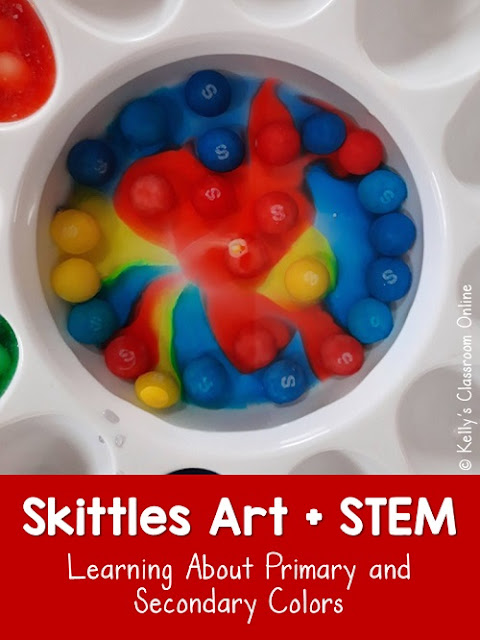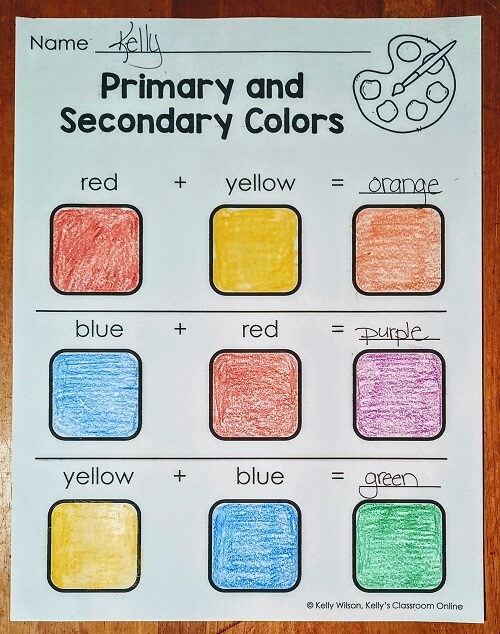A few weeks ago, I wrote a blog post about the different ways you can use
Skittles to teach some basic math skills
such as counting, sorting, and graphing. Did you know you can use Skittles to
teach some basic art concepts too? Skittles can be used to teach children
about primary colors and how to combine them to make secondary colors. Keep
reading to learn how!
Disclosure:
Affiliate links
to Amazon are included in this post.
What are primary and secondary colors?
Primary colors are the three colors that can be combined to make different colors. Red, blue, and yellow are primary colors.Secondary colors are colors made by combining two primary colors. Orange, green, and purple are secondary colors.
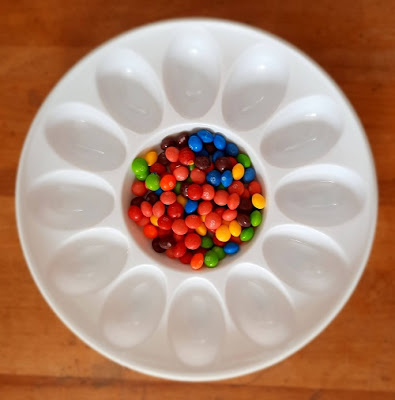
What happens when we mix primary colors?
This STEAM experiment... STEAM = STEM + Art... gives students an opportunity to explore what happens when they combine different colored Skittles. Specifically, they will be exploring what happens when they mix:- red + yellow
- red + blue
- blue + yellow
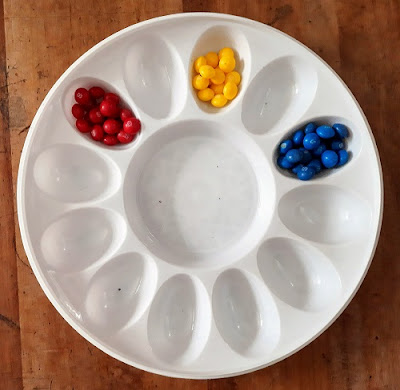
Materials Needed
There are very few materials needed for this STEAM / STEM activity. These
materials can be purchased inexpensively at a grocery store.
- red, yellow, and blue Skittles
- little cups or bowls (I used a deviled egg tray.)
- spoon or stirring stick
- water
- optional: experiment record sheet below
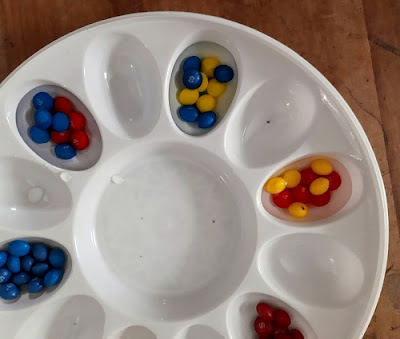
Directions
- Open the bag of Skittles and pull out the red, yellow, and blue pieces. You can eat the other colors or save them for another day.
- Sort the red, yellow, and blue Skittles by color.
- Combine some red and yellow Skittles in one cup, some red and blue Skittles in another cup, and some yellow and blue Skittles in a third cup.
- Add a small amount of water to each cup and stir gently.
- Observe. What is happening to the water?
- Experiment with adding more red, yellow, and blue Skittles in the cups. How do the colors change?
- If your students start combining primary and secondary colors, don't panic. Turn their exploration into a minilesson about tertiary colors... colors such as green-yellow, blue-violet, yellow-orange, etc.
- Note: If the Skittles remain in the water for too long, the white candy on the inside will start to dissolve and change the color and texture of the water. If this happens, you can turn this into a minilesson too... how do the white candy pieces change the water?
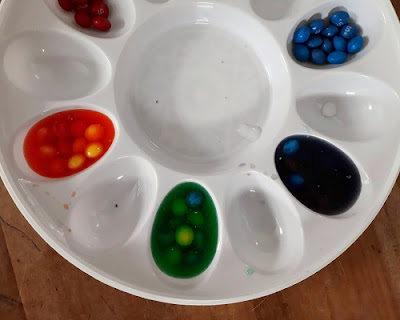
Results
If your students combined their Skittles properly, they should get the
following results:
- red + yellow = orange
- red + blue = purple
- blue + yellow = green
When your students complete this STEM activity, they can record their
results on the printable below.
To download a FREE copy of this printable, (one page in all), please click on
the image above. Clicking this image will take you to the
Teachers-Pay-Teachers third-party website. This is a
FREE download-- no purchase necessary.


Did you enjoy this STEM / STEAM experiment? If so, check out these blog posts
for more STEM activities:
- Pro Tip: What is STEM Education?
- Pro Tip: Top Five Science Materials to Keep in Your Kitchen
- STEM: What Happens When You Plant Birdseed?
- STEM: How to Grow Celery from Scraps + STEM Activity
- Book: Crackle and Pop! Bible Science Experiments by Hanna Holwerda
- STEM: Dippin' Dandelions STEM Challenge

